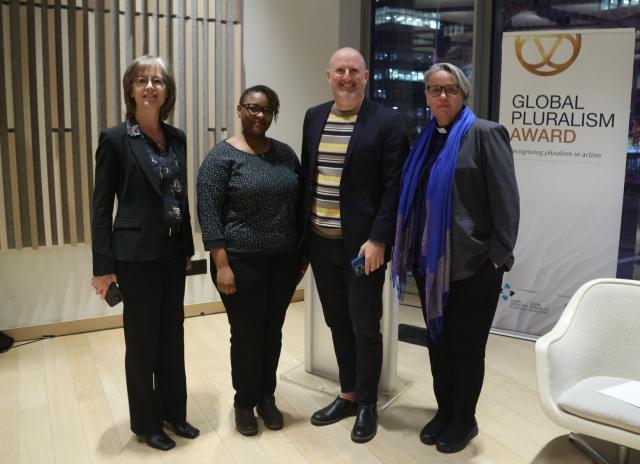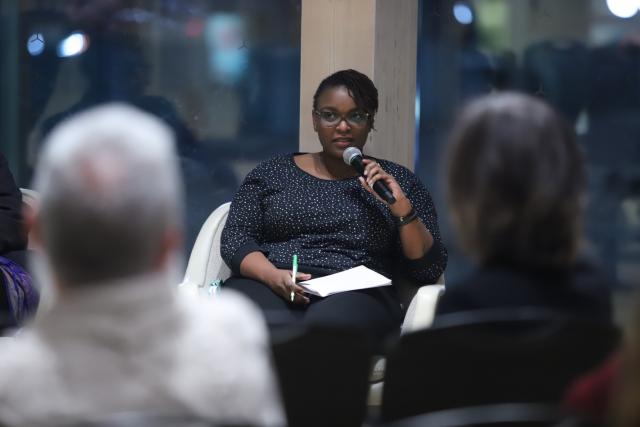Jane Thirikwa writes that dialogue among communities affirms diverse gender identities and sexual orientations.

Striving towards pluralism is essential for collective just, peaceful, and equitable communities in today’s diverse world. Transformative change in practice is evidenced through powerful stories that inspire action in others. Even in the most difficult spaces, thinking beyond singular notions of identity, taking action to advance diversity and having spaces for dialogue is collective responsibility.
I was inspired to share this at a recent panel event hosted by the Global Centre for Pluralism, together with Toni Kruger-Ayebazibwe, the Executive Director of the Global Interfaith Network for People of All Sexes, Sexual Orientations, Gender Identities, and Expressions (GIN-SSOGIE), Rev. Dr. Brent Hawkes, Executive Director, Rainbow Faith and Freedom, and Doug Kerr, Executive Director, Dignity Network Canada on Navigating Queer Identities and Faith: Are Spaces for Inclusion and Pluralism Possible? The panel event was one of a series of events following the 2023 Global Pluralism Awards, that celebrate the inspiring and brave work that is helping to build more inclusive societies where diversity is valued and protected.

The panel acknowledged that indeed, navigating queer identities within the context of faith, can be a complex and challenging journey, as religious and faith traditions have historically held varying perspectives on 2SLGBTQIA+ identities. There are however, efforts and spaces that strive to promote inclusion and pluralism, uplifting and affirming the diversity of human experiences.
We live in a time of rapid change, great inequities between peoples, and collective harm to our most marginalized in our communities, including 2SLGBTQIA+ people. In the context of rising anti-2SLGBTQIA+ hate and rhetoric globally, it is critical that we imagine ways differences of all kinds can be a source of collective strength when they are respected and embraced. It is also important to recognize the agency and resilience of individuals who navigate their identities at intersections of their faith.
The United Church of Canada has a heritage of radical openness, of being inclusive of people in the church family despite significant disagreement. Challenging discriminatory practices within faith communities fosters understanding and discourse that affirms diverse gender identities and sexual orientations. As such, we must strengthen the church’s commitment to join with others in the common task of caring for one another and the whole of God’s creation, to see a world transformed by love.
Spaces for inclusion and pluralism are indeed possible, and the examples that were shared during this event demonstrated that across the globe, communities, organizations, and institutions are working towards creating environments that embrace diversity, respect for different perspectives, and fostering a sense of belonging for all individuals. The central messages that emerged clearly and in powerful ways in all our service to humanity is love, to love one’s neighbours, as well as compassion for the most marginalized and oppressed peoples.
—Jane Thirikwa, Program Coordinator, Global Advocacy 2SLGBTQIA+, The United Church of Canada
The views contained within these blogs are personal and do not necessarily reflect those of The United Church of Canada.